Interview by Pippin Lee
Photos courtesy of Dan Carr (http://www.dancarrphotography.com)
Hi Dan, thanks for giving me a bit of your time, really appreciate it. So would you like to introduce yourself? Where are you from and how long have you been shooting professionally?
I’m from England, but it doesn’t snow there so I moved to Canada a few years ago and I’ve been shooting professionally now for two and a half years.
Some of us in North America don’t really think of the UK as having a big ski scene. Can you tell us how the ski culture across the pond differs from that of North America?
Yeah it’s funny for a country that doesn’t get any snow itself there is a huge ski scene. The good thing is that the channel tunnel means you can drive to the French Alps or Swiss Alps in about 12-14 hours. So really you aren’t that far from snow. There is also a big indoor ski scene. I think there are now five snowdomes that have short indoor slopes and a bunch of snow cannons to make the snow. On top of that there are a lot of dry slopes. Those things are where a lot of Brits learn to ski, it’s kind of like skiing on a slope covered in toothbrush bristles. Don’t fall!
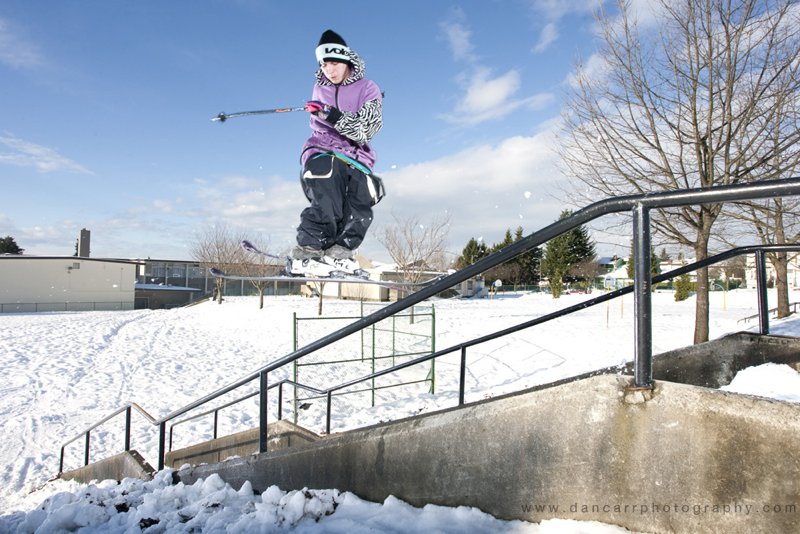
Leigh Powis, deuce on in Vancouver with Poorboyz
Where were you, and what were you shooting when you first realized your passion for photography?
That’s tough because I didn’t realize I actually had a passion for photography for so long. I think I actually realized I had a talent for it before I realized I had a passion for it, if that makes sense. I have had a Canon Film SLR since I was about 10. My dad gave it to me and I learned a lot by just using it when I was young, I actually used to shoot a lot of motor racing with it as my dad was in the industry. Then when I lived in Whistler for a while in 2005 I decided skiing would be a good thing to take photos of. People kept asking me where I learnt to take photos but really it wasn’t one place or time, it was more of a gradual thing. So gradual in fact that I didn’t even realize I was doing it!
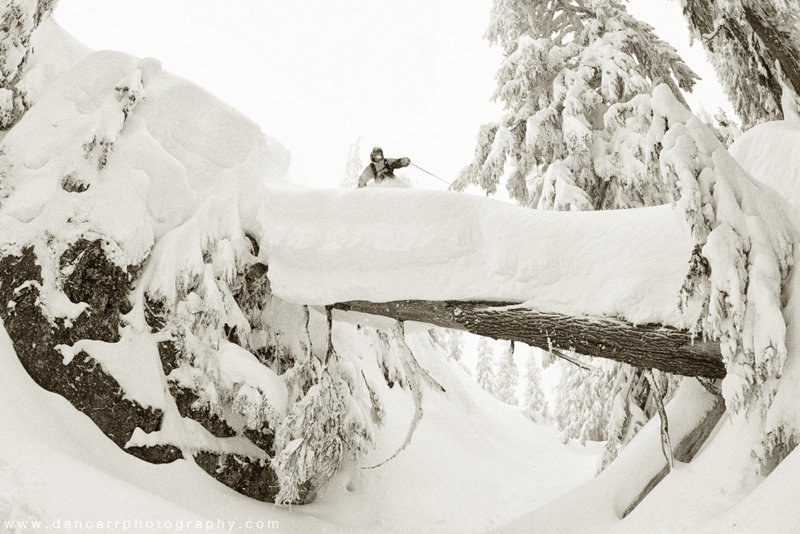
Austin Ross, Whistler Backountry
You have had quite an unusual journey to get where you are in the photography world today. Not many professional photographers can boast such an impressive university degree such as yours. Can you talk about your transition from school life into the photography workplace?
(laughs) Yeah so I have a degree in Aerospace Engineering, it was a pretty intense degree to get. A lot of hard work. When I was finished I decided I needed a break before I got a real job with it. I picked Whistler for my break and fell in love with the place. There isn’t much of an Aerospace industry in Canada compared with the UK so I had to find something else to do here if I wanted to stay. I picked ski photography, pretty much out of a hat.
If you had to do it over again would you have gone straight into photography or do you really value the skills you learned from getting your degree?
I think I would still have done my degree, it taught me to think in a certain way. It changed the way I approach problems and I’m sure it has helped me. Obviously there is a lot of redundant information rattling around in my brain now but I don’t mind that. There is one problem getting into this business and that is that there are hundreds if not thousands of other people trying to do the same thing. The way I approached that problem was undoubtedly influenced by the way I learnt to solve problems in my degree.
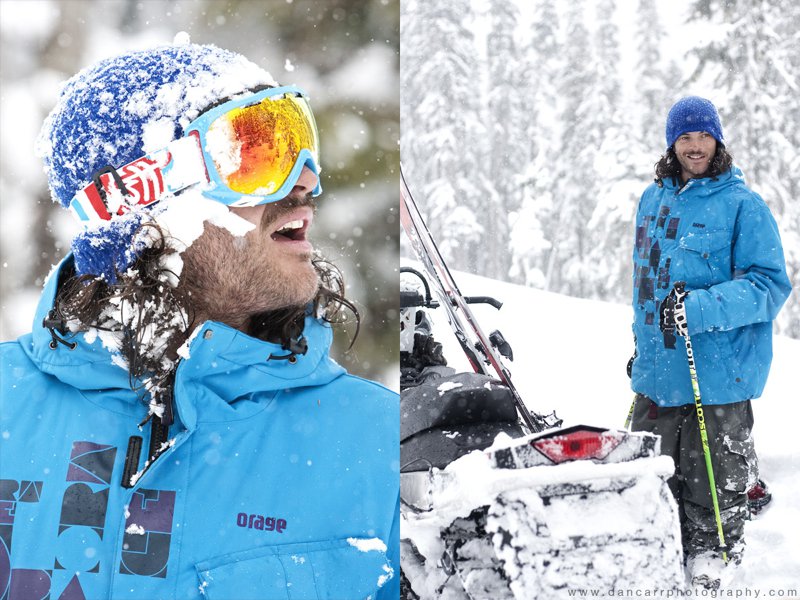
Charley Ager
How did you gain most of your knowledge in photography?
On the Internet. All the info you need is out there, but you have to learn to weed out the crap. For every useful piece of info there is 10 totally useless incorrect pieces of crap. If you can spot the good bits it’s all there for you.
How did you get your start with shooting skiing and snow sports, and what was your first paid shoot?
I lived with a guy at university, Darryl Ball, he was doing the same degree as me but he was also a professional skier. We used to ski together a lot and I dragged him out to Whistler with me. My first published shot was of him, on the cover of a local Whistler magazine.
Why snow photography?
I just love the lifestyle and I love to ski and board myself. You need to enjoy what you shoot to understand it and with that come the good shots I think.
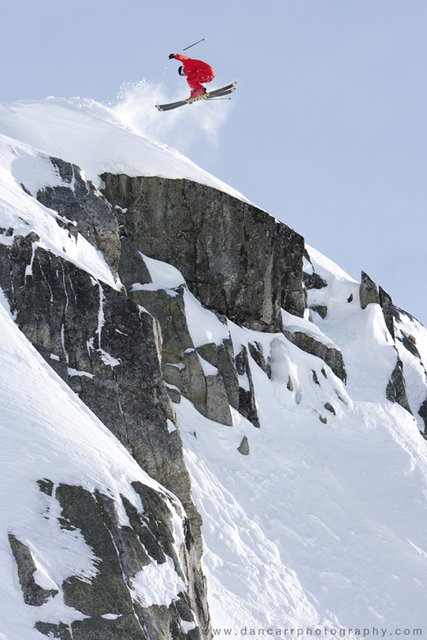
Anthony Boronowski , Every Day Is A Saturday in the Whistler BC
Now working in the cold exposes your equipment to extreme conditions, so what are some of the best ways for photographers to keep their gear at a 100% on those –20 C days? Is there any special maintenance you perform when you have completed a shoot? Are there certain products you carry with you?
Good question! Best thing to remember is never take your gear inside with you to a restaurant for lunch. That will instantly fill your gear with condensation and is a real pain in the ass. When I get home I just get all my gear out on my desk and take all the lens caps off. I haven’t had too much trouble but sometimes my Pocketwizards freak out and wont switch on, they don’t like the damp but have all come back to life in the warm. I don’t have anything special with me though; on a long trip I take a thing called an arctic butterfly with me. It cleans the sensor to get the dust off and I also have a Rocketblower. But out on the mountain I don’t do too much. If it’s very cold I put batteries in my jacket instead of my bag to keep them a bit warmer and lengthen their life a bit.
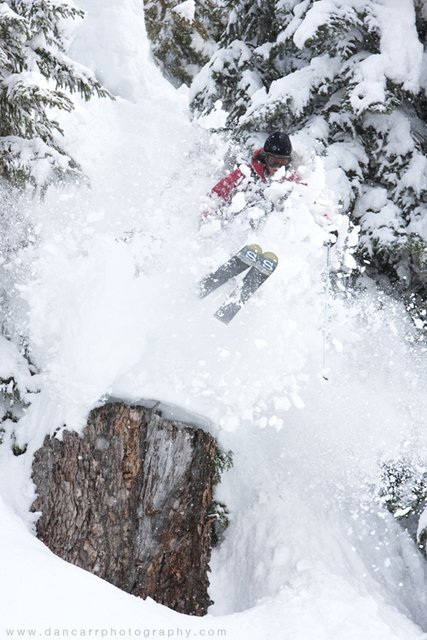
Brandon Kelly
Tell us about your most challenging/grueling shoot so far.
Last year I was shooting a magazine piece in New Zealand. We were skiing on the North Island and the snow was terrible. In fact it wasn’t snow at all, just sheet blue ice everywhere. I had two guys with me ready to huck things but it was too hard for that. We spent three or four days trying to find anything they could safely get some air off. I don’t think I took a single shot on the first two days; we just cruised around trying to find things, exploring every single corner the resort had to offer. Eventually we found a cat track gap that worked so we were stoked but it was tricky. It is easy to get frustrated in those situations but the best thing is to keep looking. I’d rather shoot a couple of good shots that one hundred bad ones so I always wait until I have found what i am looking for.
Tell us about your most enjoyable/rewarding shoot so far.
Actually in New Zealand again last year shooting at Snowpark. Beautiful sunset and shooting with Dane Tudor. The snowmobile was towing him up so he hit the jump every 45 seconds and every jump he did he nailed a different axis and a different grab. We got more banger shots in 10 minutes than I had got all summer, and the lighting was beautiful.
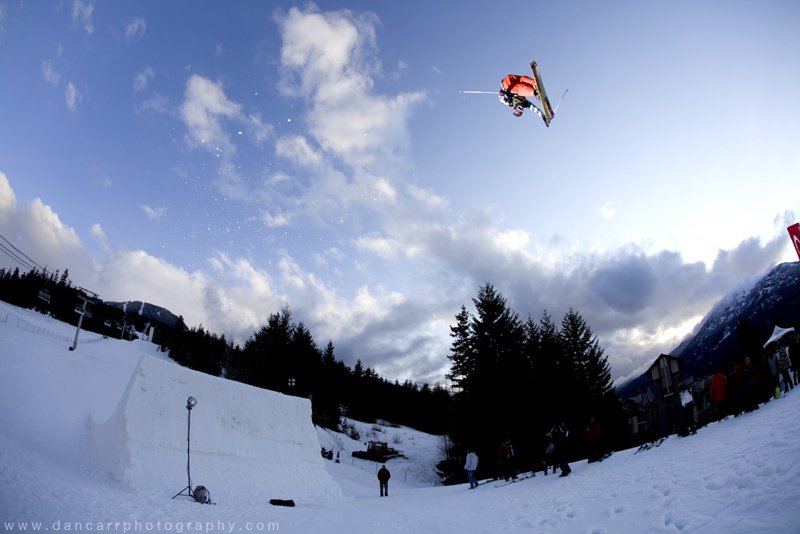
Mike Mertion at the TWSSF big air in Whistler.
Besides your camera gear, what is the single most important piece of clothing or equipment when out on a shoot?
An avalanche transceiver. It saves lives. And dry gloves, I always have a spare pair in my pack.
Looking back, what advice would you give to someone starting in the ski photography field that you would like to have known when you were starting out?
There’s a lot of ski magazines around the world, make use of all of them. To be honest nothing has taken me by surprise since I started. You don’t do this job if you want to be rolling in cash straight away, and don’t do it if you need to know when your next pay cheque is coming. Do it because you love the lifestyle, the outdoors and the mountains. And the friends that come with that. I guess it also would have been nice to know just how much equipment I was going to need! It’s never ending.
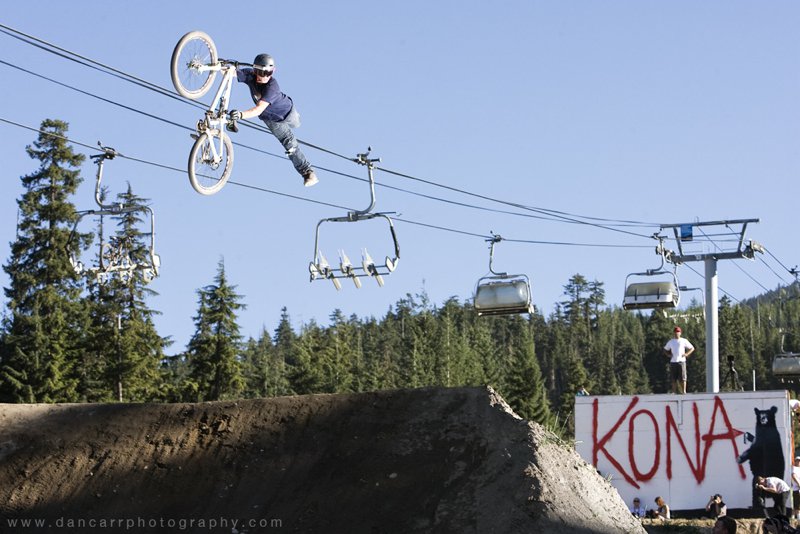
Shooting Mountain biking in Whistler in the summer time. Casey Groves, Crankworx.
What advice would you give to someone who wants to be successful in the photography business, whether it be skiing or wildlife?
Learn about how to run a business and let the photography take care of itself.
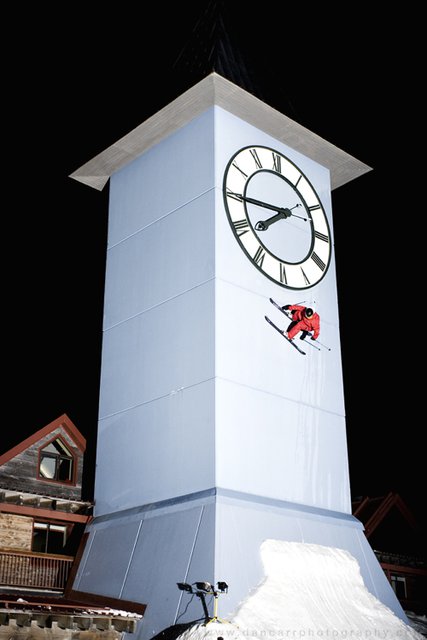
Certainly one of my most memorable shoots. Jossi Wells at Cardrona in New Zealand.
Favorite body and lens to shoot with: 1DMKIIN or 5dMKII and 70-200 f4 L IS
Favorite rider to shoot: Leigh Powis and Joe Schuster – we always get bangers!
Most memorable shoot: Cardrona Clock tower shoot with Jossi Wells
Different countries traveled for photo shoots: Canada, US, France, Switzerland, New Zealand
How many days do you get to ride a year? Without my camera gear? About 10. (laughs) Don’t do this job if you want to ride a lot. I don’t call it riding if I have two 30-pound packs with me. If you do count those days though, I guess I spend about 200 days in the mountains.
Any last words of wisdom?
Make a good website and be very, very critical of your own work. You need to know when you have made a bad shot and then you need to figure out why it’s bad so you don’t do it again. Unless it was just a total blunder (laughs). We all have those days.
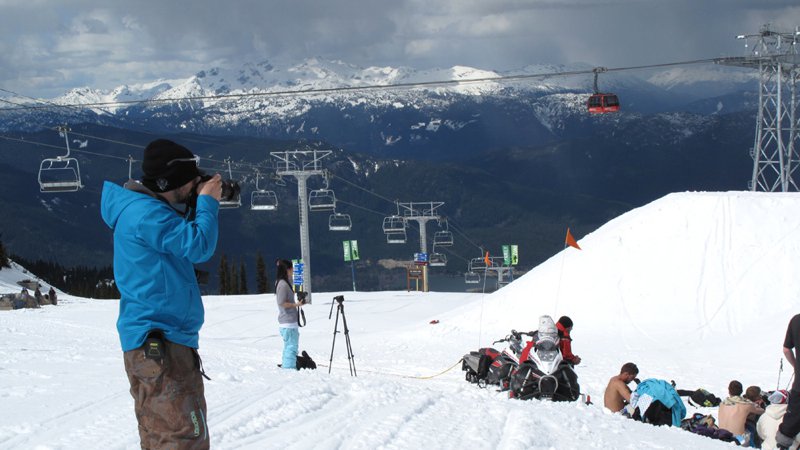
Dan getting the shot shooting for Whistler Blackcomb last week. photo: Ryan Proctor/WB

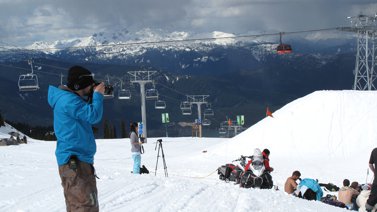
Comments